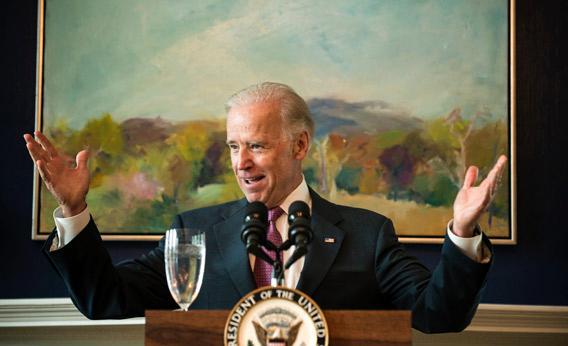1. On July 11, 1804, Aaron Burr fatally wounded Secretary of the Treasury Alexander Hamilton in a duel. Hamilton had smeared Burr’s name in the press.
Burr killed a man. Enough said.
2. On Sept. 11, 2001, with the president away from the White House, Dick Cheney took the helm in the situation room.
And some would say he never gave it back. Either way, the attack on the United States and subsequent “war on terror” made Cheney the most powerful veep in U.S. history.
3. In 1899, Garret Hobart cast the tie-breaking vote not to grant independence to the Philippines, which the United States had acquired during the Spanish American War.
Putting the kibosh on the political autonomy of 7,832,719 people is a big deal. William McKinley’s No. 2 earned the nickname “Assistant President” for his assertiveness.
4. While in office, Spiro Agnew accepted bribes and evaded his taxes. A watered-down plea bargain induced him to resign in 1973.
The disgraced veep embarrassed his country—and took part in the first of several scandals to haunt Nixon’s White House. The presidency has never been the same.
5. In December 1828, John Calhoun penned the South Carolina Exposition and Protest.
Calhoun, the vice president under John Quincy Adams, wanted to stake out his opposition to a federal tariff that he felt trampled on state’s rights. In so doing, he authored the nullification doctrine—the precept that states can reject rulings from the national government. As America tipped toward civil war, this elevation of the local paved the way for a flurry of secessions in the South.
6. On May 6, 2012, Joe Biden offered up his full support for gay marriage on NBC’s Meet the Press. “I am absolutely comfortable” with “men marrying men” and “women marrying women,” the vice president declared.
We just watched this one. The White House says Obama’s “evolving” position was heading to the same place—very soon. Maybe so. But Biden’s gaffe made Obama get there sooner.
7. On Nov. 10, 1993, Al Gore clobbered Ross Perot in a televised debate on the proposed North American Free Trade Agreement.
Perot seemed a little unhinged; Gore played it cool. By the end of the televised trouncing, the 34 percent approval rate for President Clinton’s project had spiked to 57 percent. Thanks in large part to Gore’s footwork, NAFTA passed in the House of Representatives only a few days later.
8. On May 8, 1942, Henry A. Wallace delivered a stirring wartime speech to the Free World Association in New York City. FDR’s veep outlined the Allies’ core ideological arguments for taking on the Nazis.
It’s hard to imagine a vice president being given such an important brief nowadays. Unfortunately for Wallace’s political prospects, he kept talking—about civil rights and building an alliance with the Soviet Union. So FDR dropped him from the ticket and picked up Harry S. Truman as his last running mate. The rest is history.
